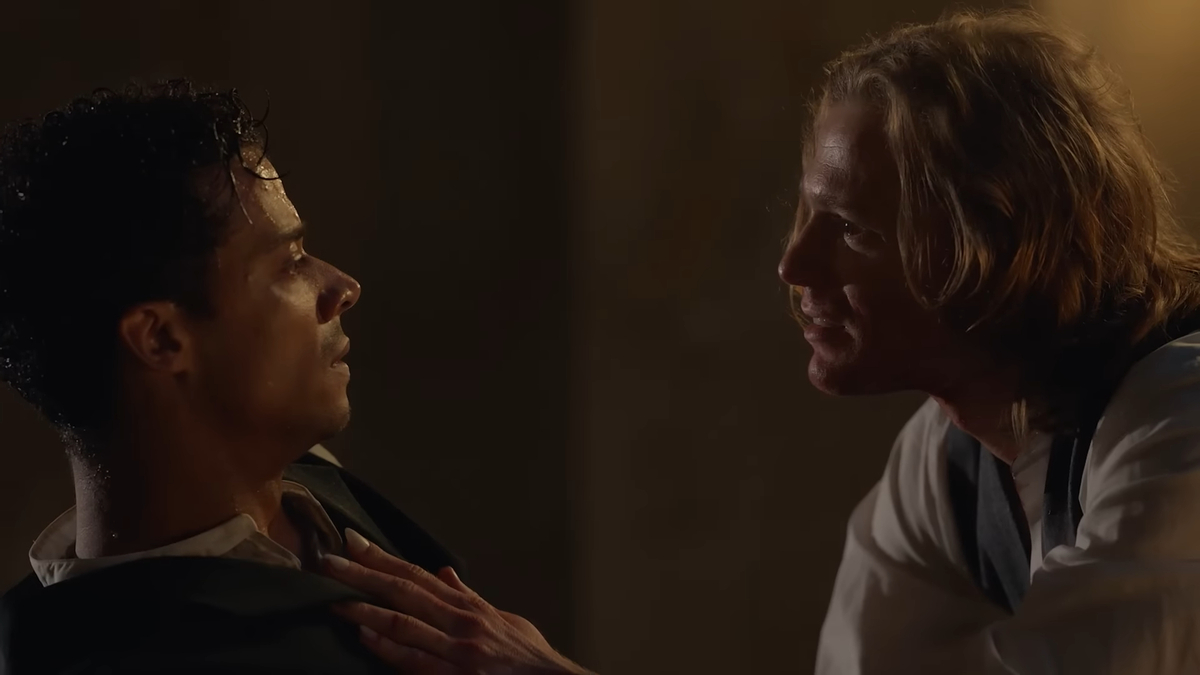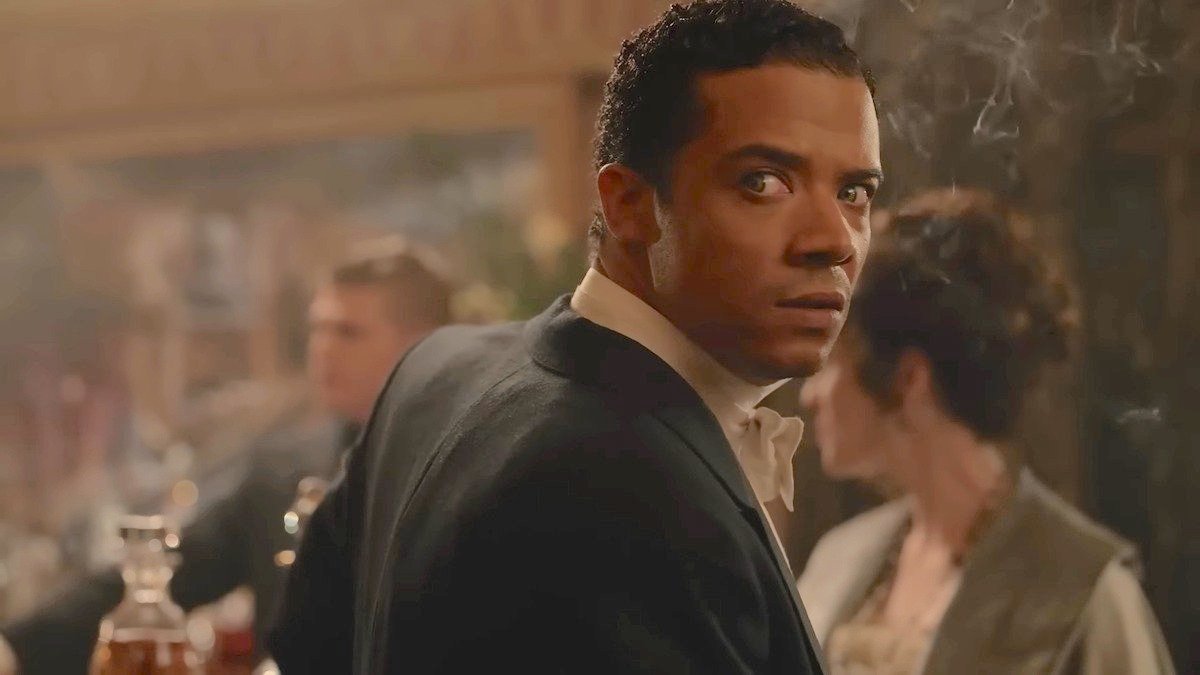Warning: the following article contains spoilers for Anne Rice’s Interview with the Vampire.
The most recent vampiric story to grace our screens is none other than an adaptation of Anne Rice’s book, Interview with the Vampire. The narrative follows Louis de Pointe du Lac, a human who meets and is seduced by Lestat Lioncourt, a vampire who offers the protagonist eternal life at his side, a daughter, and the opportunity to rise above other mere mortals. The story flashes backward and forward in time, as Louis recounts the tale of his life to the journalist Daniel Molloy, as the two work on a book.
As many may know, this AMC series isn’t the first adaptation of Anne Rice’s tale. In 1994, a movie was released starring Brad Pitt as the main character, and Tom Cruise in the role of Lestat, which was a success among viewers and is today considered a classic in vampire cinema. Now — almost 30 years after the movie’s premiere — these characters are brought back to life on the small screen, portrayed by Jacob Anderson and Sam Reid. But how does the series compare to the movie? How does it differ? If you’d like to find out, stick around, but be warned, this article contains spoilers for the Interview with the Vampire TV show, so turn back now if you’d rather avoid it.
The gay themes

Unlike the 1994 movie, the AMC show overtly portrays Louis as a gay man and his struggle dealing with his sexuality in a time when that wasn’t socially acceptable. As for the main character’s relationship with Lestat, it’s also very clear that the two maintain a romantic connection, as Lestat courts (or hunts, more like) his way into Louis’ affections. For his part, Louis is initially intrigued and in awe of the other man, as the vampire shows him a world of enticing possibilities, and that admiration culminates into a moment of sexual intimacy, where Lestat bites Louis for the first time.
The racial dynamics
One of the biggest changes to this timeless story is in Louis de Pointe du Lac’s character, who in the series is portrayed as a black man. This change allows the series to explore the struggles of black people in a period setting, as Louis tries to make a comfortable living for himself and his family after his father passed away. As a person of color, no amount of money seems enough for Louis to be respected by those around him, namely, the rich white folk who play nice with Louis in order to do business with him, while still looking down on him and offering little compensation for his work.
Another interesting detail the show dives into is how race changes the dynamic between Louis and Lestat, and the implications of their master-student relationship. As one can imagine, having a white man in a position of power, playing both savior and condemnor to an emotionally vulnerable black character doesn’t bode particularly well. However, Anne Rice’s Interview with the Vampire doesn’t shy away from diving into those implications, making it a point to address multiple times the power imbalance in the characters’ relationship, instead of romanticizing it.
The modern setting
A remake doesn’t always imply that the content will be adapted to fit into our contemporary age; it certainly happens sometimes, but most often, shows tend to gloss over major events of the current world. Well, AMC’s version of Interview with the Vampire is in with the times, folks. Right from the get-go the audience is surprised by the mention of very recent, globally impactful events, namely, the COVID-19 pandemic, aiding the process of uncovering Molloy’s motivations for accepting to redo the interview. Later, the audience also learns how the pandemic affected Louis… and his feeding habits.
Overall, these are the three main aspects where Anne Rice’s Interview with the Vampire differs from the 1994 movie, and they certainly bring something worthwhile to the table. The AMC adaptation adds a fresh spin to a beloved classic, and the result is an astounding success (so far at least). With more episodes on the way — and a second season already announced — there’s still time for the tide to turn. You can watch new episodes of Interview with the Vampire every Sunday on AMC and AMC Plus.

